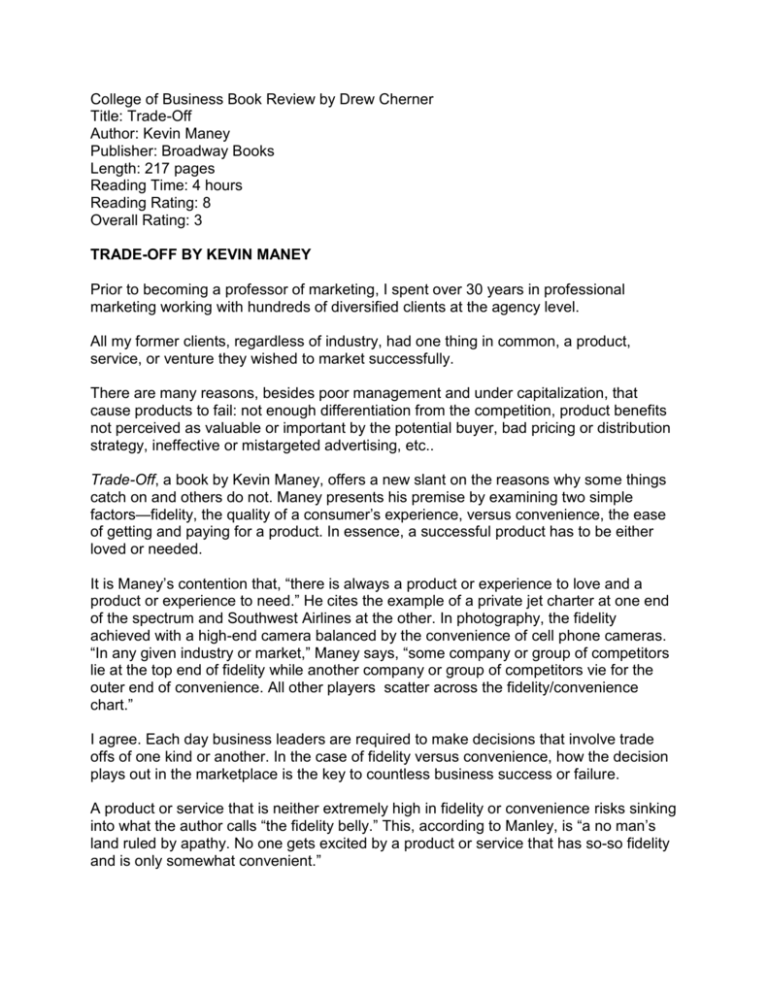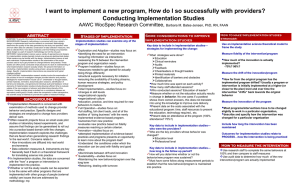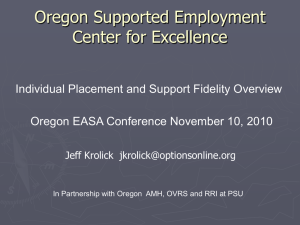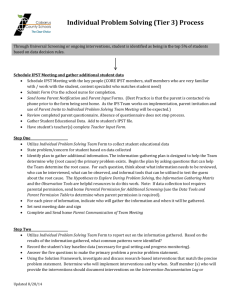College of Business Book Review by Drew Cherner
advertisement

College of Business Book Review by Drew Cherner Title: Trade-Off Author: Kevin Maney Publisher: Broadway Books Length: 217 pages Reading Time: 4 hours Reading Rating: 8 Overall Rating: 3 TRADE-OFF BY KEVIN MANEY Prior to becoming a professor of marketing, I spent over 30 years in professional marketing working with hundreds of diversified clients at the agency level. All my former clients, regardless of industry, had one thing in common, a product, service, or venture they wished to market successfully. There are many reasons, besides poor management and under capitalization, that cause products to fail: not enough differentiation from the competition, product benefits not perceived as valuable or important by the potential buyer, bad pricing or distribution strategy, ineffective or mistargeted advertising, etc.. Trade-Off, a book by Kevin Maney, offers a new slant on the reasons why some things catch on and others do not. Maney presents his premise by examining two simple factors—fidelity, the quality of a consumer’s experience, versus convenience, the ease of getting and paying for a product. In essence, a successful product has to be either loved or needed. It is Maney’s contention that, “there is always a product or experience to love and a product or experience to need.” He cites the example of a private jet charter at one end of the spectrum and Southwest Airlines at the other. In photography, the fidelity achieved with a high-end camera balanced by the convenience of cell phone cameras. “In any given industry or market,” Maney says, “some company or group of competitors lie at the top end of fidelity while another company or group of competitors vie for the outer end of convenience. All other players scatter across the fidelity/convenience chart.” I agree. Each day business leaders are required to make decisions that involve trade offs of one kind or another. In the case of fidelity versus convenience, how the decision plays out in the marketplace is the key to countless business success or failure. A product or service that is neither extremely high in fidelity or convenience risks sinking into what the author calls “the fidelity belly.” This, according to Manley, is “a no man’s land ruled by apathy. No one gets excited by a product or service that has so-so fidelity and is only somewhat convenient.” Trade-Off includes countless examples of highly successful ventures that have prospered because of fidelity or convenience-- Netflix, Amazon, and Wal-Mart, on the convenience side compared to Harvard, Bose, and ESPN, on the fidelity side. It is also possible, as Apple illustrates, for one company to have a portfolio of products that include both high fidelity, the iphone, and high convenience, the ipod. The book contains examples of ventures that made poor fidelity/convenience trade off decisions. Starbucks became successful by offering its customers a unique high fidelity experience, but their global expansion went in the opposite direction toward high convenience. Starbucks believed they could be both at the same time causing as Howard Schultz, Starbucks founder, said, “the commodization of the Starbucks experience.” Starbucks could not achieve genuine convenience while attempting to hold on to its sense of fidelity. Trade-Off offers a common sense look at why some businesses succeed while others do not. The book is fun, easily understood, and a must-read for aspiring entrepreneurs and marketing professionals.





